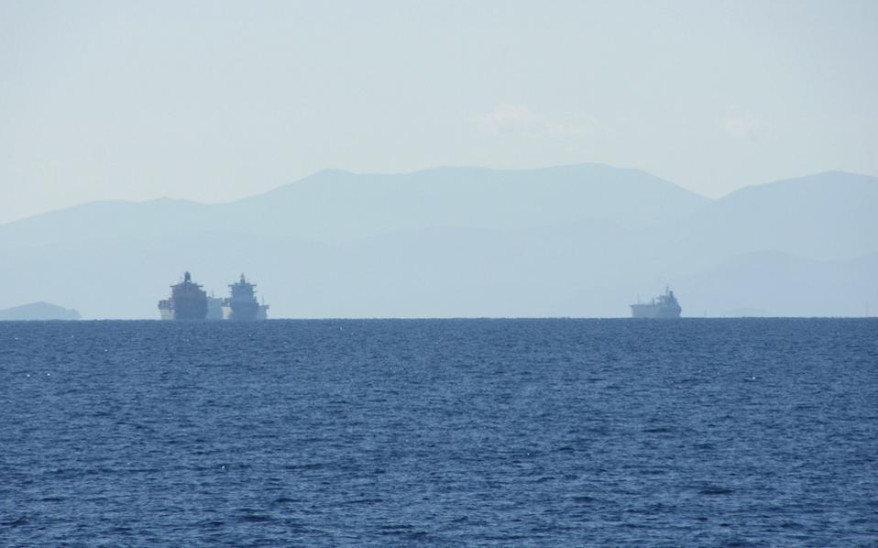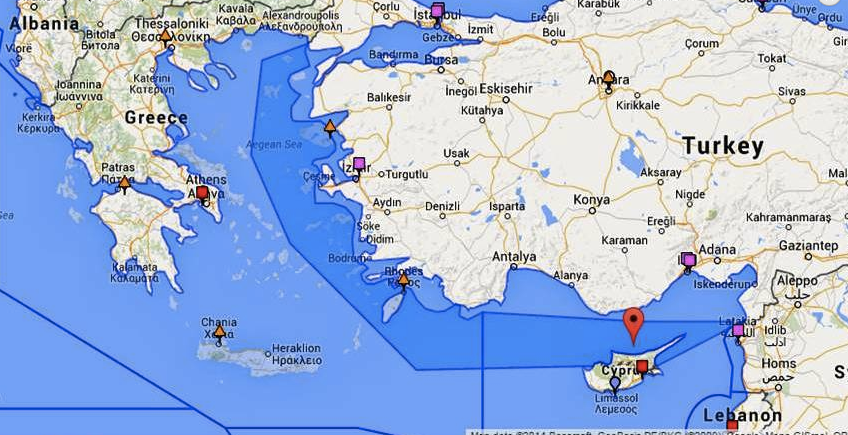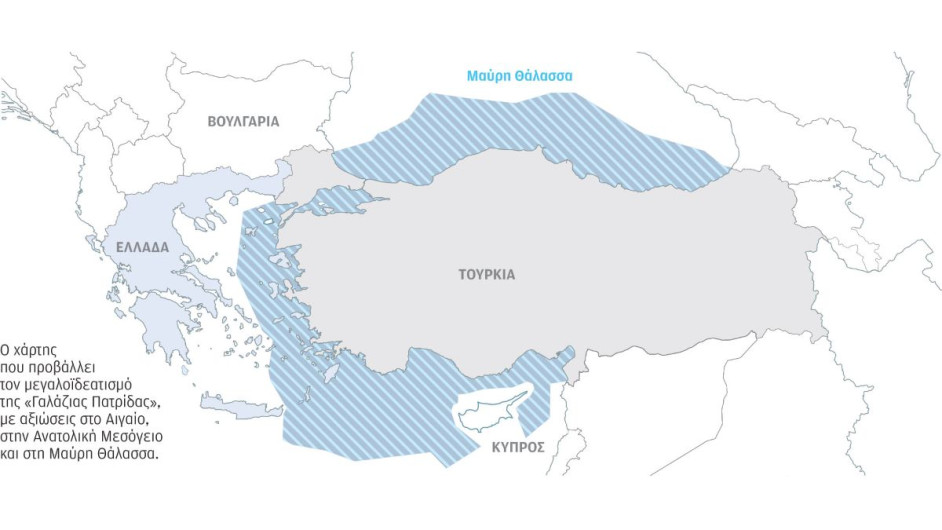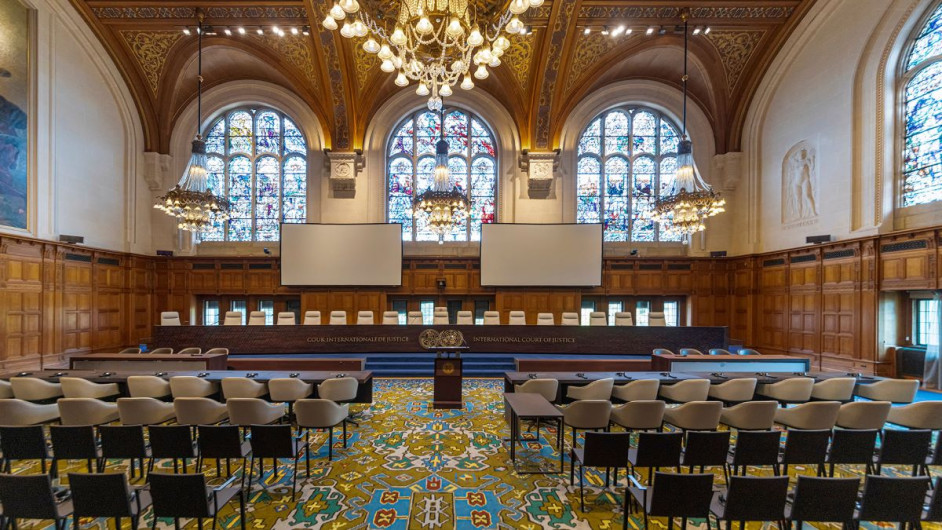In the 3rd episode of SKAI’s new Podcast series, Angelos Syrigos, Professor of International Law, explains why Turkey disputes the domination of the Greek islands, how the “blue homeland” is linked to the Aegean and what would mean to Greece for Greece. Hague court
With the Turkish side pursuing and constantly triggering tension in Aegeanwe hear and read on a daily basis now for words such as EEZ; shelf; gray zoneseven territorial waters. Words that have been unknown to us so far or at least confused in our minds. How sure we are that we know accurately what each of them mean?
In this New Podcast 4 episode series of SKAI entitled ‘The alphabet of Greek -Turkish relations“, The journalist Stefanos Nikolaidis He discusses with the Professor of International Law at Panteion University and ND MP, Angelfor the importance of basic and fundamental concepts around the Greek -Turkish relations.
To third episode of the series, Angel Syrigos explains in a comprehensible and understandable manner Why Turkey challenges the sovereignty of the Greek islandsbut also How is the “blue homeland” linked to the Aegean claims and What would mean to Greece a appeal to the International Court of Justice in The Hague.
You can hear the whole episode here.
What do international conditions predict for the Aegean
A reasonable question of many is why the reason Turkey challeng the sovereignty of the Greek islands. There are internationalthere are conventionsthere is and Lausanne. Does the Turkish side specifically bet or just do it for domestic consumption?
Let’s take them from the beginning. A first question is what are the conditions that determine the legal status of the Aegean. The answer is that the basic conditions are Treaty of Lausanne of 1923on the basis of which Greece took All Aegean islands, the eastern islands of the Aegean except for the Dodecaneseand is the Treaty of Paris of 1947 by which takes the Dodecanese and.
Do these conditions have gaps? No, they are absolutely clear.
The Treaty of Lausanne says that Turkish domination in the Aegean is exhausted in as many islands up to 3 miles from the Turkish coast. In addition, the allies gave Turkey Imbros and Tenedos, which are named because they are over 3 miles off the Turkish coast. Therefore, The Treaty of Lausanne has no gaps. And also Greece has essentially took what Italy had. So there are no gaps. Turkey has never questioned these two conditions since ’23 or ’47.
Something that was not done when conditions were signed, discovered after 1996 and Imia crisis.
In the Imia crisis, Turkey comes and says’I question the Greekness of small islands that are not expressly named in international agreements“
It is a fact that there are small islands that are not expressly named;
Of course. In the Aegean at the moment there are about 9,000 islands. In international law, Island is anything that has its surface over the sea in the case of the maximum flood. Island is also Crete, island is also a rock islandthat is, a rock of a square meter, as long as it is above the surface of the sea.
Therefore, we have 9,000 such islands. Of them 450 belong to the Turkey. They are the ones along the Turkish beaches of up to 3 miles, plus Imbros and Tenedos. And we have somewhere 8,500 Greek islands. From Turkish side the inhabited is 7by Greek side The inhabitants are 100.
Why Turkey challenges the sovereignty of the Greek islands
The reason Turkey comes and disputes it is related to the fact that was in a difficult position against him Greek argument “Let’s go to solve our differences in the delineation of the continental shelf at the International Court of Justice in The Hague ».
What was Turkey’s strategic move?
The court decides on the continental shelf taking into account the islands. If Turkey disputes whether the islands belong to Greece, the court is obliged as a first step in the process of finding out who the islands belong to.
It is normal that there is no Greek government that will go and say ‘go to court to see if the Ovens with 1,100 people, the Oinousses with 800 people, the Gavdos With 150 people belong to Greece or not. “
It is another to discuss the boundaries of your field and another to discuss if the things that are in your home are belonging to you or not. So the Turkey By putting this issue, essentially closed the door of the international courtbecause Greece will never discuss these things in the International Court of Justice.
But the truth is that you can’t go to discuss if you belong to Gavdos, you can’t go to the International Court of Justice if the ovens belong to you, if the Oinousses belong to you.
The “Gray Zones” and “Distribution of the Islands”
Turkey called the above strategy “gray zones of dominance” It does not say that these islands “belong to me”. Says that “These islands are not mentioned anywhere, so come to see who they belong to, they may belong to me. “.
The “gray zones” are exactly what the word says: areas of unspecified domination. In fact this is invention of Turkey and has no basis in international law.
The 2020 and 2021 Turkey has taken another step. So far he has questioned the Greek sovereignty in the islands that are not expressly named.
In 2020 and 2021 with three letters sent by the then Turkey spokesman to the UN, Turkey challenged Greek sovereignty to large and expressly named Aegean islands and specifically in Samothraceto Lemnto Lesvosto Chiosto Samosto Ikaria and in Dodecanesewith the argument that “While they had to be demilitarized, they have been militarized, so after Greece has taken them on the condition of demilitarization and since it violated this term, the islands have virtually ceased to belong to it.”.
So we currently have two groups of islands called Turkey: First The small and unstoppables named in the circumstances, which because they are not named say “come and see who they belong to” and secondly The large and explicit names, in which, because Greece has militarized them, it has lost the title of sovereignty on them.
The birth of “Blue Homeland”
OR Blue arrested as a concept around 2003-2004when a map was published by some professors at the University of Seville, who showed the potential Greece’s Exclusive Economic Zone (EEZ) and her Cyprus in the wider area.
This map, known today as Seville mapit went unnoticed by Greece, but in Turkey it became a mess. Why? Because it shows that Crete, Kasos, Karpathos, Rhodes and Kastelorizo have EEZ, which is found with the EEZ of Cyprus.
Turkey believes that these islands there have neither continental shelf, EEZ nor anything and virtually the Turkish continental shelf interrupts the Greek continental shelf and the EEZ of Cyprus. So it started.
Then some Turkish Navy officers took the baton completely irrelevant to international law, who did what did they do? They got Whatever Turkey had said at times about seas, EEZ, continental shelf and incorporated it into a strategy they called it Strategy of Blue Homeland.
This strategy is supposed to be all the seas surrounding Turkey, namely the Black Sea, the Aegean and the Mediterranean. In fact, however, in the Black Sea there is no such issue, because there are demarcated and coastal zone and continental shelf and EEZ of Turkey with its neighboring countries.
So the strategy of the blue homeland is a strategy that concerns Exclusively in the Aegean and the Mediterranean and specifically in Greece and Cyprus. It is a strategy against Hellenism.
What is the basic perception of the doctrine of “Blue Homeland”
The blue homeland is directed against the islands, the islands are its absolute enemy. What does the blue homeland say?
Assumed to accept the basic position of international law that The islands and continental territories have a continental shelf and EEZbut It is sufficient not to be close to continental soils. Must abstain from continental territories at least 200 miles.
Because in the Aegean the distances are short as we have said, Greece cannot develop a complete continental shelf because it is not 400 miles from Turkey. What islands are in the Aegean between Greece and Turkey is non -existent to Turkey and only the continental coasts are taken into account.
It has the same perception in the Mediterranean region, where there is an island, it is the state of Cyprus. So Turkey completely ignores the state of Cyprus and calls on neighboring states to sign agreements with her, as if there were no Cyprus. That is, its rights appear to overcame Cyprus and asking to sign an agreement with Israel, with Lebanon, with Egypt, with which it has no opposing shores, has no marine front.
What does Greece appeal to Greece
When the International Court of Hague It was a breath for humanity. Because until then the only way to resolve disputes, if there were disagreements, was the war. This is something that Greece fully accepts and accepts its logic.
But here is the following problem with Turkey. Turkey says we do not have just one difference for the demarcation of continental shelf and EEZ. He tells you, “Come go to the International Court of Justice to see who your islands belong, come on to discuss the matter, what I think exists and does not exist in the Aegean.”
Turkey saying this thing has been filled since 1974 the table with a series of claims: EZone coastline, continental shelf, continental shelf demarcation, EEZ, airline boundaries, rescue research zone limits, gray zones for small islands, gray zones of dominance for large islands, the boundaries of FIR Athens.
That is, it has filled a series of claims which they are constantly ejected. And he tells you, “Come on all this to go to the Hague International Court of Justice.” It is normal that Greece cannot go to discuss non -existent issues.
It’s not that I disagree with my neighbor about where the boundaries of my field are. I have my neighbor, who tells me “I question the boundaries of your plot”, where you can present your own and your own contracts and close it.
And he goes on, “I think the TV that is in your home and the sofa you sit can be mine. Come go to court to see who they belong to. Do not be upset, the court will justify you. “
The international community does not work.
Source: Skai
I have worked in the news industry for over 10 years. I have been an author at News Bulletin 247 for the past 2 years. I mostly cover politics news. I am a highly experienced and respected journalist. I have won numerous awards for my work.














